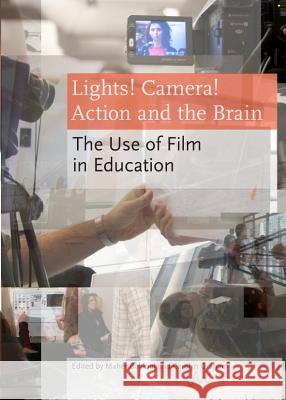Lights! Camera! Action and the Brain: The Use of Film in Education » książka
Lights! Camera! Action and the Brain: The Use of Film in Education
ISBN-13: 9781443836579 / Angielski / Twarda / 2012 / 345 str.
Lights Camera Action and the brain: The Use of Film in Education is about an innovative pedagogy whereby performing arts and digital production play a key role in teaching and learning. The book combines theory and practice; as such, it lays solid neurological foundations for film and media literacy, and provides several relevant practical applications from worldwide scholars. The book contains thirteen chapters three of which address a number of theoretical issues related to the camera and the brain while the remaining ten are practical illustrations of the extent to which film and video are used as pedagogical tools. In the book preface, Nikos Theodosakis, author of 'The Director in the Classroom', writes that the book contributors 'have built a wonderful bridge for us to travel over'. In fact, the book chapters transcend age restrictions to include diverse age groups, children and young adults. The topics range from learning language and philosophy to learning about one's self, one's environment, and one's cultural identity. Much more importantly, the book addresses the needs of regular and special needs learners. Arts in general, and films in particular, are shown to display salient and dynamic roles in appealing to a wide variety of regular and special needs learners. In short, the book is highly beneficial to educators and to education managers; it 'will have the power to change teaching and the way the curriculum is perceived' for several generations to come.











